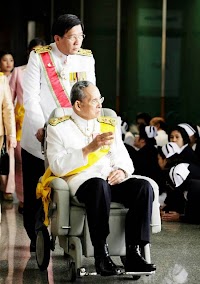Brought up in a working-class family in downtown Helsinki, Halonen has built a highly successful political career by building ties with trade unions and nongovernmental organizations. Serving as President since 2000, she has vehemently defended the President’s role as commander in chief of the military, and campaigned against Finnish membership in NATO. Her hobbies belie her powerful position: she is said to enjoy swimming and taking care of her two cats. In 2006, TV host and comedian Conan O’Brien endorsed Halonen’s re-election because of her strong resemblance to him.
08. Laura Chinchilla, President of Costa Rica
A former Vice President under Nobel laureate Oscar Arias Sánchez, Chinchilla won a 47% majority in the February 2010 election. In a country increasingly concerned about crime, the center-leftist played up her security experience: she previously served as both Public Security Minister and Justice Minister in the National Liberation Party. A social conservative, she opposes gay marriage, abortion and the legalization of the morning-after pill. She has pledged to continue the pro-business policies of her predecessor by courting international investment and expanding free trade.
07. Johanna Sigurdardottir, Prime Minister of Iceland
06. Sheik Hasina Wajed, Prime Minister of Bangladesh
05. Ellen Johnson Sirleaf, President of Liberia
Educated at the University of Wisconsin and at Harvard, Africa’s first female President served as Liberia’s Minister of Finance in the late 1970s. But when Samuel Doe seized power in a military coup in 1980 and executed the President and several Cabinet members, Johnson Sirleaf fled to Kenya, where she became a director at Citibank. She returned to contest the 1996 presidential election and lost to Charles Taylor. In 2005, she ran again and won, promising to bring motherly sensitivity and emotion to the presidency — a tall order in a country still reeling from years of civil war.
04. Julia Gillard, Prime Minister of Australia
After she helped orchestrate a Labor Party coup that ousted Prime Minister Kevin Rudd on June 24, 2010, Gillard, 48, became Australia’s first female PM. Tasked with rebuilding dwindling support for her party, she called snap elections just three weeks into office, hoping to benefit from her bounce in public opinion. But the Aug. 21 election proved inconclusive: neither Gillard’s center-left government nor the Liberal-National coalition led by Tony Abbott were able to secure an outright majority. The stalemate finally broke on Sep. 7. After more than two weeks of protracted negotiation with a handful of independent candidates, Gillard secured a 76-74 majority in parliament to form a minority government.
03. Dilma Rousseff, President of Brazil
“I would like parents who have daughters to look straight in their eyes and tell them: ‘Yes, a woman can,’” Dilma Rousseff said following her victory in Brazil’s runoff election. When she takes the reins of the world’s fourth largest democracy on Jan. 1, Rousseff will become the South American country’s first female president. Her win, a victory for would-be women leaders everywhere, was also a nod to outgoing President Luiz Inácio Lula da Silva, who handpicked her for the job. As Lula’s former chief of staff, Rousseff promised to carry on the outgoing and overwhelmingly popular leader’s work. “I offer special thanks to President Lula,” she said in her election night speech. “I will know how to honor his legacy. I will know how to consolidate and go forward with his work.”
02. Cristina Fernández de Kirchner, President of Argentina
Elected President in November 2007 (thereby succeeding her husband Néstor), Fernández has proven she is her own woman. Dismissively referred to as “Cristina” by some members of Argentina’s macho political elite, Fernández has survived a standoff with the country’s powerful farming lobby, a fallout with the U.S. over a suitcase allegedly containing illegal campaign contributions and a series of high-profile economic-policy spats that culminated in the ousting of the governor of Argentina’s Central Bank earlier this year. With her striking appearance and polarizing rhetoric, she inevitably draws comparisons with former First Lady Eva Perón.
01. Angela Merkel, Chancellor of Germany



















Post a Comment
EmoticonClick to see the code!
To insert emoticon you must added at least one space before the code.